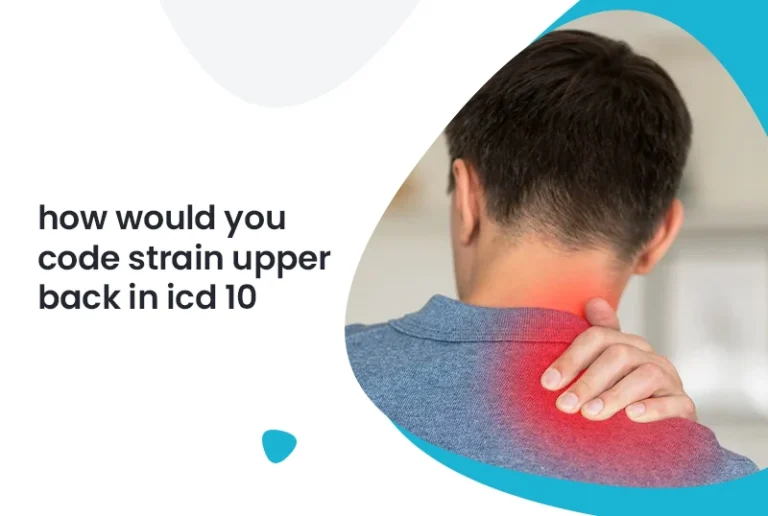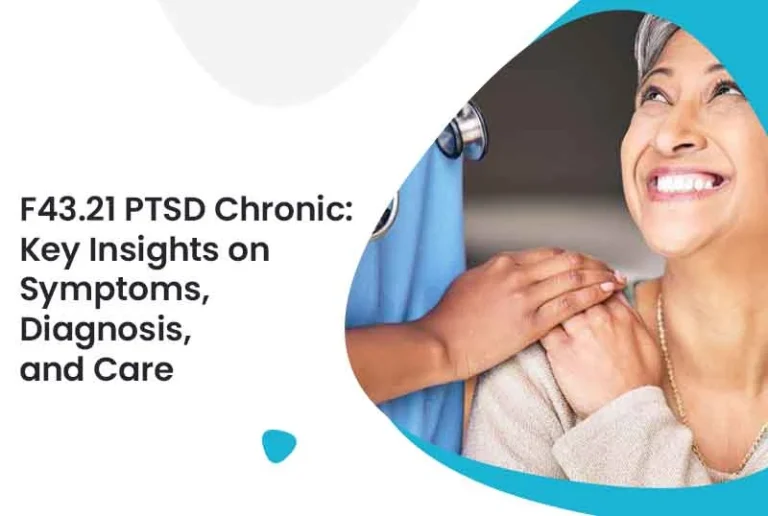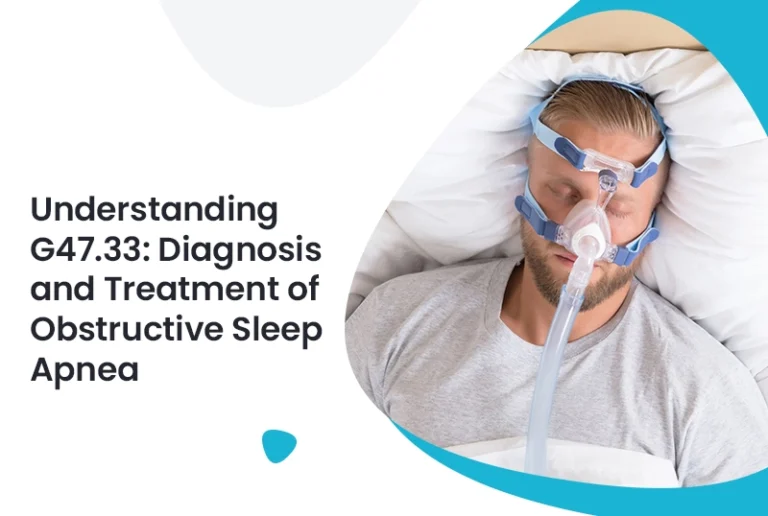Loss of appetite, or anorexia (not to be confused with anorexia nervosa), is a frequently reported symptom across multiple medical conditions. The ICD-10 code for loss of appetite is R63.0, categorized under “Symptoms and signs concerning food and fluid intake.” For healthcare providers, coders, and billing teams, understanding and correctly using this code is crucial—not just for clinical clarity, but also for accurate claim submission and reimbursement.
Today’s evolving billing landscape places high demands on practices to stay compliant. For solo providers and small to mid-size clinics, outsourcing to a specialized medical billing service can help ensure codes like R63.0 are properly applied, avoiding delays or denials.
What Does ICD-10 Code R63.0 Represent?
R63.0 refers specifically to anorexia, defined in medical terms as a reduced or complete loss of appetite. This is not to be mistaken with anorexia nervosa, which is a psychiatric eating disorder and coded under the F50 category.
Loss of appetite may be mild, temporary, or persistent, and is often a symptom of a broader condition. Here are a few situations where the loss of appetite ICD 10 code is commonly used:
- Cancer patients experiencing side effects from treatment
- Patients with chronic infections like tuberculosis
- Seniors with undiagnosed underlying conditions
- Individuals with gastrointestinal or endocrine disorders
- Cases of severe depression or mental health instability
Recognizing and correctly coding this symptom helps document its influence on the patient’s condition and supports the medical necessity of care provided.
Why Accurate Documentation Matters
Clinical documentation is the backbone of proper ICD-10 coding. For R63.0, providers must describe:
- When the loss of appetite began
- How long it has persisted
- Any associated symptoms (e.g., nausea, fatigue)
- Underlying conditions that might contribute to the symptom
- Impacts on nutrition, hydration, and general health
A symptom like loss of appetite ICD 10 may seem minor but can influence care plans significantly. This is particularly true in older adults, where appetite loss can lead to malnutrition or worsening of chronic disease.
In such cases, having access to medical credentialing services ensures your practice is approved to bill payers for evaluations and ongoing care related to appetite and nutritional concerns.
Coding R63.0: Tips and Pitfalls
Though R63.0 is a symptom code, its placement in a claim matters. It’s typically used as a secondary diagnosis to support the primary reason for the visit or treatment. When used properly, it paints a full picture of the patient’s clinical condition.
Common Coding Errors to Avoid:
- Using R63.0 as a primary diagnosis without a documented need for further evaluation or follow-up.
- Confusing R63.0 with eating disorder codes like F50.0 (anorexia nervosa).
- Failing to justify the symptom’s impact on care through notes and medical necessity documentation.
To improve your accuracy, it’s essential to also understand metrics like the pc ratio in medical billing—which helps practices measure productivity and payer performance, especially when codes like R63.0 are frequent in chronic care visits.
Related ICD-10 Codes & Differentials
Appetite loss often occurs with other symptoms. The following codes may accompany R63.0 for a more accurate claim:
- R63.4 – Abnormal weight loss
- R63.5 – Abnormal weight gain
- R63.2 – Polyphagia (increased appetite)
- R53.1 – Weakness
- E44.1 – Moderate protein-calorie malnutrition
Using these in conjunction with loss of appetite ICD 10 enables more nuanced care tracking and helps justify more intensive follow-ups or specialist referrals.
Read More: G0439 and Modifier Use: Avoiding Common Billing Mistakes
Clinical Impact and Risk Factors
The presence of appetite loss is a red flag in many clinical scenarios. Beyond obvious physical causes, psychological issues like major depressive disorder, grief, and anxiety can also trigger it. Additionally, medications such as antibiotics, chemotherapy drugs, and painkillers are common appetite suppressants.
In patients with long-term appetite loss, the risks include:
- Dehydration
- Muscle wasting
- Cognitive decline
- Hospital readmissions
- Decline in functional independence
Because of these risks, accurate coding using R63.0 isn’t just a billing necessity—it’s a clinical one. Documentation should reflect whether appetite loss is mild or severe, whether it warrants dietary interventions, and whether it’s causing measurable harm.
Reimbursement Considerations
While R63.0 may not always lead directly to reimbursement when used alone, it supports claims when paired with a more specific primary diagnosis. For example:
- A cancer diagnosis (e.g., C50.9) + R63.0 = supports nutritional counseling
- Major depressive disorder + R63.0 = supports appetite stimulant medication
- GI disorder + R63.0 = supports follow-up endoscopy or referral
By documenting appetite loss as part of a broader condition, you support both medical necessity and appropriate coding.
Understanding concepts like tos full form in medical billing—which stands for Type of Service—helps ensure correct categorization during claim submission.
How to Improve Billing Accuracy for R63.0
Improving your practice’s use of symptom codes like R63.0 requires more than training. It involves process optimization. Here’s what you can do:
- Use EHR templates that prompt symptom-based documentation
- Assign billing audits every quarter to catch miscoded claims
- Partner with trusted services like Precision Hub to manage complex coding scenarios
- Ensure all provider credentials are up to date, especially for payers with strict symptom code policies
- Educate staff on coding updates and policy changes
When done right, even a code like loss of appetite ICD 10 can serve as a gateway for better patient tracking, billing success, and data-informed decision-making.
Conclusion
The ICD-10 code R63.0 for loss of appetite may seem like a basic symptom code, but its role in patient care, billing accuracy, and clinical insight is significant. Whether it’s tied to chronic illness, mental health, or nutritional decline, proper documentation and coding help improve outcomes and prevent claim denials.
For busy providers, managing all of this can be overwhelming. That’s why healthcare organizations trust experts like Precision Hub to support billing, credentialing, and compliance services—so they can focus on what matters most: quality care.
FAQs (Frequently Asked Question)
Q1. What is the ICD-10 code for loss of appetite?
A: The ICD-10 code is R63.0, categorized under symptoms concerning food intake.
Q2. Can R63.0 be used as a primary diagnosis?
A: It’s typically used as a secondary diagnosis to support more specific conditions.
Q3. Is R63.0 the same as anorexia nervosa?
A: No. R63.0 represents the symptom of appetite loss, not the psychiatric disorder.
Q4. What’s needed to bill with R63.0?
A: Clear documentation on the symptom’s severity, duration, and impact on care.
Q5. How can I prevent denials when using this code?
A: Use it with a clear primary diagnosis and ensure symptom documentation justifies its inclusion.






